News
-
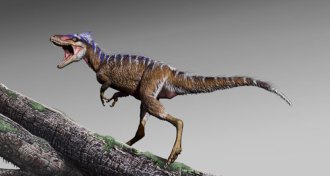 Paleontology
PaleontologyA deer-sized T. rex ancestor shows how fast tyrannosaurs became giants
A newly found dinosaur called Moros intrepidus fills a hole in the evolutionary history of tyrannosaurs, helping narrow when the group sized up.
By Jeremy Rehm -
 Chemistry
ChemistryWhy kids may be at risk from vinyl floors and fire-resistant couches
Children from homes with all vinyl floors and flame-retardant sofas show higher levels of some synthetic chemicals in their bodies than other kids.
-
 Planetary Science
Planetary ScienceMars’ lake may need an underground volcano to exist
If a lake under Martian ice is real, there must be a subsurface magma pool to keep conditions warm enough for water to remain liquid, scientists say.
-
 Climate
ClimateTidal floods driven by climate change may hurt small businesses
Parking data from Annapolis, Md.’s historic downtown shows how tidal flooding, driven by sea rise, can hurt local business.
By Sujata Gupta -
 Chemistry
ChemistryWhy some Georgia O’Keeffe paintings have ‘art acne’
Tiny protrusions are from chemical reactions in the paint, say scientists who developed an imaging method that could help curators track the knobs.
By Jeremy Rehm -
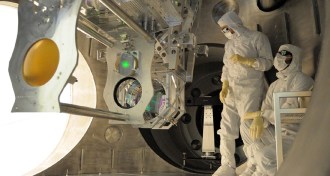 Quantum Physics
Quantum PhysicsLIGO will be getting a quantum upgrade
Quantum squeezing of light will help scientists make better gravitational wave detectors.
-
 Psychology
PsychologySTEM professors’ beliefs on intelligence may widen the racial achievement gap
Seeing intelligence as fixed can result in lower grades, especially for certain minorities
By Bruce Bower -
 Earth
EarthMuons reveal the whopping voltages inside a thunderstorm
Particle physics sheds new light on the electric potential of thunderstorms.
-
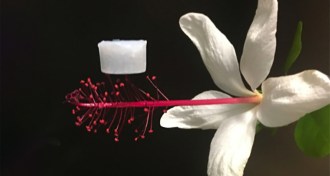 Materials Science
Materials ScienceA new insulation material is practically weightless yet still durable
Extreme heat and temperature swings are no match for this lightweight insulator.
-
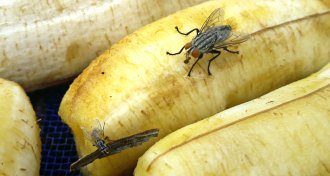 Climate
ClimateClimate change could increase foodborne illness by energizing flies
Warmer, more lively house flies could spread more Campylobacter bacteria by landing on more food.
By Susan Milius -
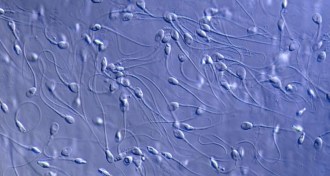 Life
LifeSlow sperm may fail at crashing ‘gates’ on their way to an egg
A new study describes how sperm navigate narrow straits in the reproductive tract’s obstacle course to reach an egg.
-
 Planetary Science
Planetary ScienceAfter 15 years on Mars, it’s the end of the road for Opportunity
After 15 years of exploring Mars, a dust storm led to the demise of NASA’s longest-lived rover.